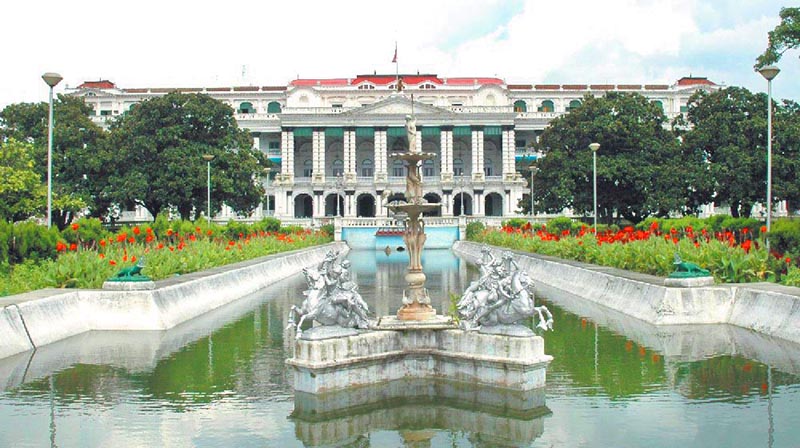Govt floats options on naturalised citizenship
- While a parliamentary panel considers the options for foreign women married to Nepali men, Nepali women married to foreign men are likely to face unequal treatment from the state
Kathmandu, September 13
After more than a year of discussion, the government today floated two options to provide naturalised citizenship to foreign women married to Nepali men in a bid to resolve the most pressing issue in passage of the Citizenship Act Amendment Bill.
The options were tabled during the meeting of parliamentary State Affairs and Good Governance Committee, which has been holding comprehensive discussion on the bill registered in Parliament on 22 August 2018. Lawmakers have asked for a day’s time to discuss the options within their parties. They are meeting tomorrow to finalise the issue.
Once the issue is settled, the citizenship bill will sail through the House of Representatives.
“We want this issue to be resolved as early as possible as the bill has remained stuck in the parliamentary committee for a long time,” said the committee’s Chairperson Shashi Shrestha.
One of the options laid by the government is to provide naturalised citizenship to foreign women immediately after getting married to Nepali men if they submit evidence to prove they have renounced citizenship of their home country within six months.
Another option is to provide naturalised citizenship after seven years of marriage. But during those seven years those women will be given identity cards that will entitle them to cultural, social and economic rights, but without political rights. This means foreign women married to Nepali men will not be able to vote or assume political posts.
While these options are being considered for foreign women married to Nepali men, Nepali women married to foreign men are likely to face unequal treatment from the state.
As per the proposal discussed today, foreign men who have married Nepali women will have to wait for 15 years to obtain Nepali citizenship. In these 15 years, the foreign man should show good moral character and should have learnt to fluently speak at least one language spoken in Nepal. The person should also renounce his country’s citizenship to be eligible to become naturalised citizen of Nepal.
After these options were tabled, lawmakers of the main opposition Nepali Congress, Rastriya Janata Party-Nepal and Samajwadi Party-Nepal sought a day’s time from Chairperson Shrestha to discuss the issue within their parties.
NC’s Dilendra Badu, SP-N’s Ram Sahay Prasad Yadav and RJP-N’s Raj Kishor Yadav said they did not want to decide on the matter in a rush. After the lawmakers made the request, Shrestha postponed the meeting till tomorrow.
Most of the lawmakers are not divided over the issue of providing naturalised citizenship to foreign men married to Nepali women after 15 years. But lawmakers have not been able to find a common ground on providing naturalised citizenship to foreign women married to Nepali men.
Nepal Communist Party lawmakers are in favour of waiting period of seven years prior to providing naturalised citizenship to foreign women married to Nepali men. But they are unlikely to move forward without winning the confidence of lawmakers of other parties.
“We have been told that foreign women will have to make do with identity cards in the seven-year waiting period. But what facilities will the ID card provide? Will the ID card enable foreign women to get jobs? Will it allow them to conduct day-to-day work without any hassle? And will other Nepali laws recognise the ID card?” Nepali Congress lawmaker Amresh Kumar Singh asked.






